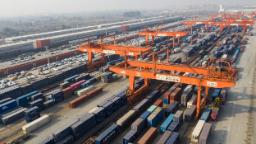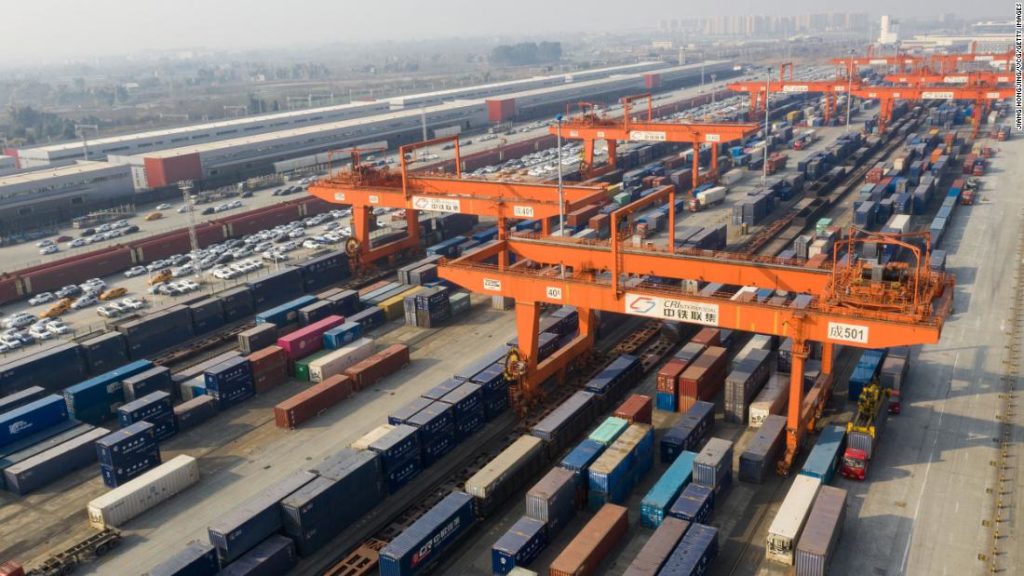
Daniel Gros, a fellow at the Center for European Policy Studies, said the switch shouldn’t come as a surprise given China’s command of global industry.
He emphasized, however, that Europe’s ties to the United States remain very strong. While headline changes look at total trade in goods, the European Union continues to export much more to the United States that it does to China, generating a significant number of jobs, he noted. The data also doesn’t take transatlantic trade in services into account, which is worth about €494 billion ($595 billion) a year.
“The overall transatlantic relationship remains much, much stronger than the one between Europe and China,” Gros said. “It’s much deeper because it has [much] more cross-[border] investment [and] transnational companies in a way you do not have with China.”
Still, Brussels is looking to deepen its economic relationship with China, despite viewing the country as a “strategic competitor” and “systemic rival.”
The European Commission said it laid down “clear obligations on Chinese state-owned enterprises,” which are often heavily subsidized, and established rules against forced technology transfers.
The deal still generated friction with the United States. Jake Sullivan, who is now President Joe Biden’s national security adviser, urged EU leaders to address shared concerns about Beijing with the incoming administration.
Changing trading dynamics could complicate Biden’s efforts to reset relationships with allies and build a global coalition to hold China to account.
Gros, however, said the full text of the EU investment agreement ultimately lacked substance. He advised the Biden administration to look beyond the headlines, and see that the content of the deal, which took seven years to negotiate, changed “very little.”
“Before that agreement, the EU was already open to China, so what concessions could it offer? None,” he said. “So what concessions could you expect China to make?”
You may also like
-
Afghanistan: Civilian casualties hit record high amid US withdrawal, UN says
-
How Taiwan is trying to defend against a cyber ‘World War III’
-
Pandemic travel news this week: Quarantine escapes and airplane disguises
-
Why would anyone trust Brexit Britain again?
-
Black fungus: A second crisis is killing survivors of India’s worst Covid wave

